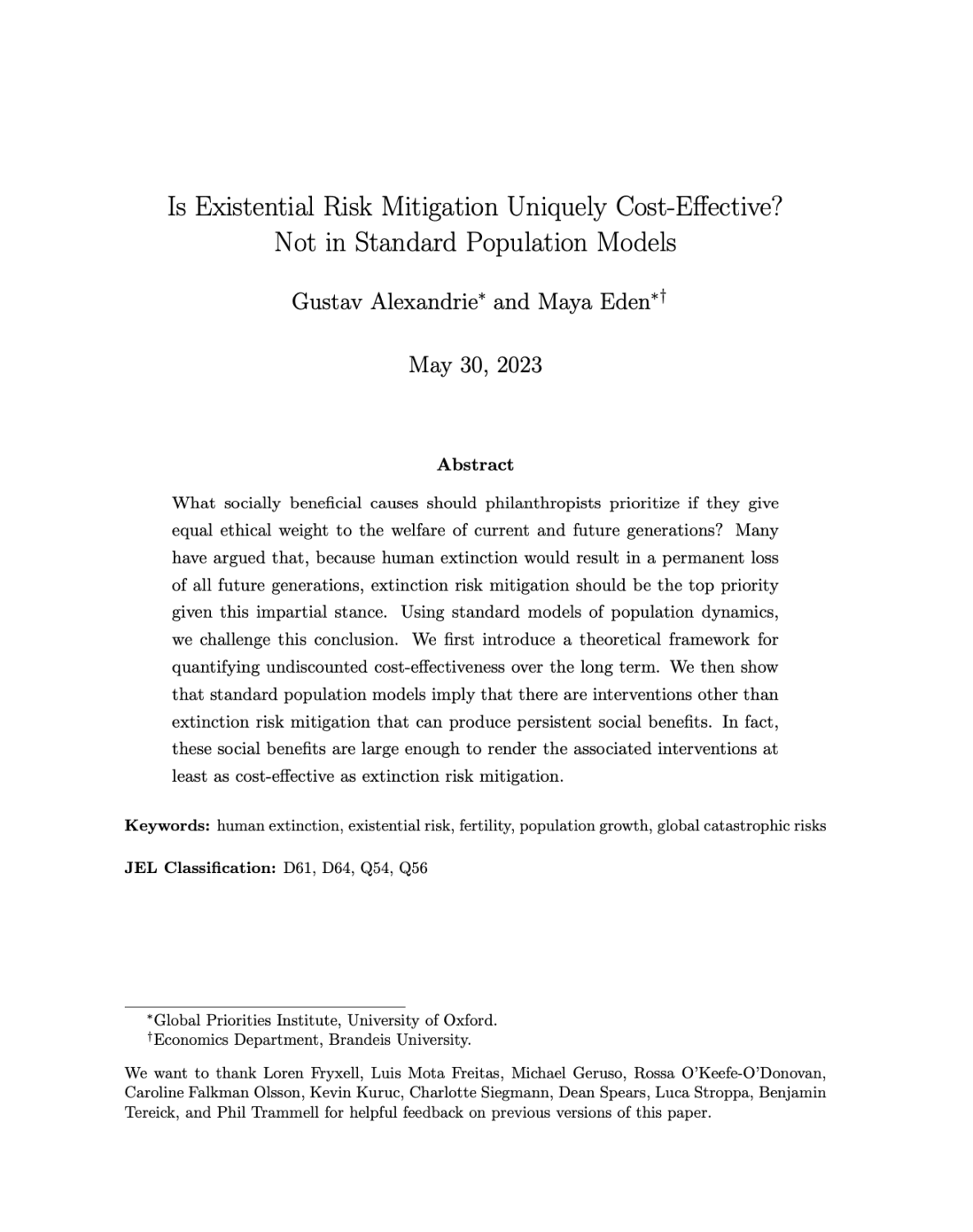Is Existential Risk Mitigation Uniquely Cost-Effective? Not in Standard Population Models
Gustav Alexandrie (Global Priorities Institute, University of Oxford) and Maya Eden (Brandeis University)
GPI Working Paper No. 5-2023
What socially beneficial causes should philanthropists prioritize if they give equal ethical weight to the welfare of current and future generations? Many have argued that, because human extinction would result in a permanent loss of all future generations, extinction risk mitigation should be the top priority given this impartial stance. Using standard models of population dynamics, we challenge this conclusion. We first introduce a theoretical framework for quantifying undiscounted cost-effectiveness over the long term. We then show that standard population models imply that there are interventions other than extinction risk mitigation that can produce persistent social benefits. In fact, these social benefits are large enough to render the associated interventions at least as cost-effective as extinction risk mitigation.
Other working papers
The case for strong longtermism – Hilary Greaves and William MacAskill (Global Priorities Institute, University of Oxford)
A striking fact about the history of civilisation is just how early we are in it. There are 5000 years of recorded history behind us, but how many years are still to come? If we merely last as long as the typical mammalian species…
A paradox for tiny probabilities and enormous values – Nick Beckstead (Open Philanthropy Project) and Teruji Thomas (Global Priorities Institute, Oxford University)
We show that every theory of the value of uncertain prospects must have one of three unpalatable properties. Reckless theories recommend risking arbitrarily great gains at arbitrarily long odds for the sake of enormous potential; timid theories recommend passing up arbitrarily great gains to prevent a tiny increase in risk; nontransitive theories deny the principle that, if A is better than B and B is better than C, then A must be better than C.
Existential risk and growth – Leopold Aschenbrenner (Columbia University)
Human activity can create or mitigate risks of catastrophes, such as nuclear war, climate change, pandemics, or artificial intelligence run amok. These could even imperil the survival of human civilization. What is the relationship between economic growth and such existential risks? In a model of directed technical change, with moderate parameters, existential risk follows a Kuznets-style inverted U-shape. …

